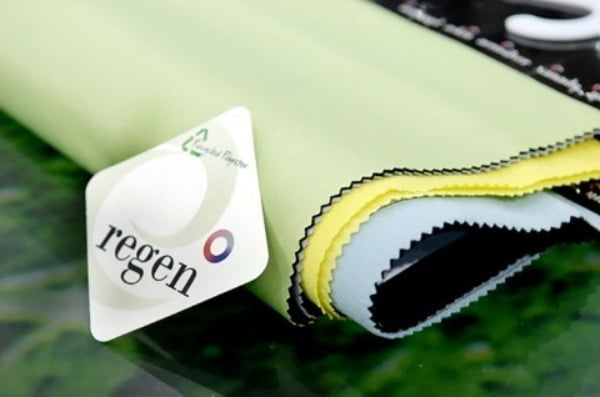ESG
Crude oil, nitric acid and yarn turn eco-friendly amid ESG boom
Korean material makers embrace eco-friendly technologies to strengthen their ESG efforts
By Jul 04, 2021 (Gmt+09:00)
2
Min read
Most Read
Samsung shifts to emergency mode with 6-day work week for executives


S.Korea's LS Materials set to boost earnings ahead of IPO process


HYBE to fire NewJeans agency CEO; Min refutes accusation


Alibaba eyes 1st investment in Korean e-commerce platform


Louis Vuitton, Chanel, Dior post weak profits in Korea post-pandemic



South Korean material makers are boosting their efforts to go green as they increasingly adopt eco-friendly technologies for raw materials such as crude oil, yarn and nitric acids.
Major oil refiner GS Caltex is set to become the country's first company to offer carbon-neutral crude oil. This month, the company will have 2 million barrels of carbon-neutral crude oil delivered to Korea from Sweden's Lundin Energy.
The Swedish company's crude oil emits about 40 times less carbon than the average crude oil. It has been certified as carbon-neutral by the British product testing and certification firm Intertek Group.
Last year, Hyosung Group's textile arm Hyosung TNC Corp. began producing regen, an eco-friendly polyester yarn extracted from recycled PET bottles. The sustainable yarn is supplied to clothing and bag manufacturers for use in fashion products.
In the past, it wasn't necessary for yarn manufacturers to take note of consumer demand for eco-friendly apparel. But the ESG boom has nudged global companies such as Coca-Cola, Nike and Adidas to request their suppliers to implement sustainable technologies.

Also, SK Chemicals Co. has developed Ecotria, a sustainable solution made from recycled PET bottles. The solution is mostly used in cosmetics containers. Last month, the company joined forces with fiber material maker Huvis to produce chemically recycled polyester yarn.
Lotte Chemical Corp. has been focusing on expanding the bioplastic market. In 2012, Lotte Chemical was the countryŌĆÖs first company to successfully develop bioplastic by using vegetable materials.
Samyang Innochem Corp. is set to complete the expansion of its isosorbide plant in the second half of the year. Isosorbide is a raw material used to make bioplastic.
ECO-FRIENDLY MATERIALS TO CREATE A PREMIUM MARKET
Meanwhile, some material makers have set their sights on pioneering a premium market through the use of eco-friendly technologies.┬Ā
Hu-Chems is a leader in Korea's nitric acid market with more than a 90% market share. Nitric acids are used as base materials to make polyurethane, as well as cleaning solutions for semiconductors and explosives. Ammonia is a key ingredient for nitric acid.
Hu-Chems imports all of its ammonia supply. And recently, the company has considered importing green ammonia, or ammonia made with 100% renewable energy, to create premium nitric acid that would be more expensive.
Creating raw materials with sustainable technology is likely to become more common in line with the ESG boom. However, it's a costly process which means that companies may inevitably hike up the price of their products.
For example, fashion goods made from Hyosung TNC's regen polyester are about 30% to 50% more expensive than goods using existing materials.
"For now, most companies highlight their offering of eco-friendly products as an element of a marketing strategy and they'll be financially pressured if they have to expand their offering of sustainable products," said an industry official.
Write to Kyung-min Kang at kkm1026@hankyung.com
Danbee Lee edited this article.
More to Read
-
 ESGGS Caltex marks KoreaŌĆÖs first company to buy carbon-neutral crude oil
ESGGS Caltex marks KoreaŌĆÖs first company to buy carbon-neutral crude oilJun 17, 2021 (Gmt+09:00)
1 Min read -
 Chemical industryHu-Chems to solidify nitrate leadership with AsiaŌĆÖs largest capacity
Chemical industryHu-Chems to solidify nitrate leadership with AsiaŌĆÖs largest capacityMar 12, 2021 (Gmt+09:00)
3 Min read -
 Eco-friendly garmentsHyosung TNCŌĆÖs Love Seoul made of recycled PET bottles
Eco-friendly garmentsHyosung TNCŌĆÖs Love Seoul made of recycled PET bottlesMar 10, 2021 (Gmt+09:00)
1 Min read -
 Fashion brand launchHyosung TNC: Shifting from yarn maker to eco-fashion trendsetter
Fashion brand launchHyosung TNC: Shifting from yarn maker to eco-fashion trendsetterFeb 09, 2021 (Gmt+09:00)
2 Min read -
 HyosungŌĆÖs recycled yarn from PET bottles lures fashion brands
HyosungŌĆÖs recycled yarn from PET bottles lures fashion brandsOct 13, 2020 (Gmt+09:00)
4 Min read
Comment 0
LOG IN


